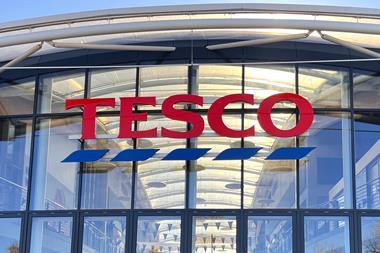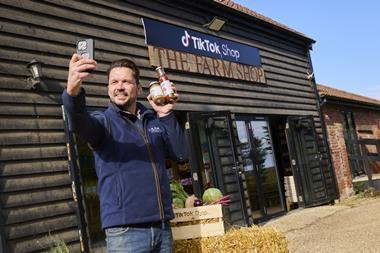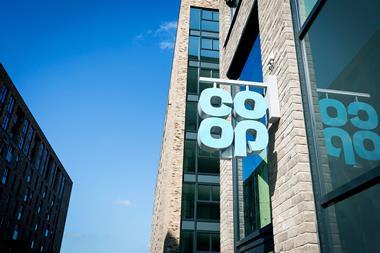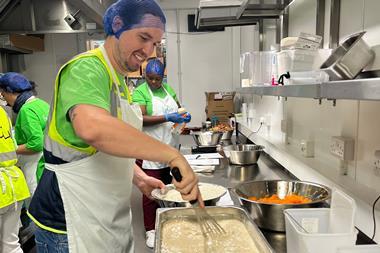Nearly 3,000 retailers and brand manufacturers gathered at the ECR Europe Conference in Berlin last week to look for the answers to these questions.
Tesco chief executive Sir Terry Leahy was joined by his ECR Europe co-chair Franck Riboud, chief executive of Groupe Danone, and the great and good of the European food industry to debate the challenges ahead and to learn how a collaborative approach had helped retailers and their suppliers tackle some of these challenges. "Our challenge is to combine our skills differently to offer better value for consumers and a real alternative," said Sir Terry.
The threat from discounters has become a hot topic on the continent, which has been much harder hit than the UK. According to Metro chief executive Hans-Joachim Körber, hard discounters in Germany have seen a 54% rise in sales growth over the past 10 years at the expense of supermarkets, which are down 20%, and other food formats, down 41%.
Put this in the wider context of a market with an overcapacity of selling space and an economy with 10 years of no real growth, and the need to collaborate is not about giving retailers and manufacturers a warm feeling, but is essential to survive.
"Consumers believe in discounters. They are now brands and it is fashionable to shop in them. This is a danger for retailers and brand manufacturers. There is no strategic possibility but to become more efficient," said Körber.
"My view is that the economic situation is not going to change much over the next few years. We need to unlock the hidden reserves in the supply chain and only then can we satisfy consumer expectations. There is too much emphasis on price at the expense of brand advertising and this can only lead to long-term category decline."
Price had become too much of an issue for retailers, agreed Jeff Schomburger, Procter & Gamble vice-president of customer business development.
"The industry is really pressed to grow the top line but the solution is not low price or private label but stepping up innovation, branding and value, by both manufacturer and retailer," he said. "Our great challenge is to provide distinctly better products at better prices."
Increasing consumer demand was key to growth, argued Roger Deromedi, co-chief executive of Kraft Foods. Retailers and manufacturers should work together on consumer and shopper insights, optimal shelf availability, joint promotions and consumer relationship management.
The other message that emerged from the conference was that demand-based management, rather than supply chain management, would provide the competitive battleground for the 21st century. Professor Hau Lee from Stamford University suggested that rather than forecasting, inventory, manufacturing, replenishment and logistics, which have dominated retailing over the past 10 years, it would be pricing, category management, promotions, new product introductions, shelf configurations, lead times and trade terms that proved the defining factors in the future.
But to manage demand, it was crucial to have a true understanding of customers, he said. The industry requires not only clean data but smart analytical technologies to turn this data into intelligence. "What you see is not what they face," he explained.
The importance of the consumer dominated the conference's closing chief executive panel. As Sir Terry said: "It is telling that, within the first hour of presentations, five chief executives spoke about the demand side."
He saw technology as being an enabler for satisfying consumer expectations, but said: "Standards are needed to allow this technology to move out of the lab and on to the shop floor."
Both Sir Terry and Riboud agreed greater leadership was needed for ECR. In order to convince more top managers, argued Riboud, Key Performance Indicators were required to measure value creation.
Sir Terry added: "We cannot just leave it to the logistics and systems people. If we want to deliver concrete developments, we must be more active on the shop floor."
{{ANALYSIS }}
Tesco chief executive Sir Terry Leahy was joined by his ECR Europe co-chair Franck Riboud, chief executive of Groupe Danone, and the great and good of the European food industry to debate the challenges ahead and to learn how a collaborative approach had helped retailers and their suppliers tackle some of these challenges. "Our challenge is to combine our skills differently to offer better value for consumers and a real alternative," said Sir Terry.
The threat from discounters has become a hot topic on the continent, which has been much harder hit than the UK. According to Metro chief executive Hans-Joachim Körber, hard discounters in Germany have seen a 54% rise in sales growth over the past 10 years at the expense of supermarkets, which are down 20%, and other food formats, down 41%.
Put this in the wider context of a market with an overcapacity of selling space and an economy with 10 years of no real growth, and the need to collaborate is not about giving retailers and manufacturers a warm feeling, but is essential to survive.
"Consumers believe in discounters. They are now brands and it is fashionable to shop in them. This is a danger for retailers and brand manufacturers. There is no strategic possibility but to become more efficient," said Körber.
"My view is that the economic situation is not going to change much over the next few years. We need to unlock the hidden reserves in the supply chain and only then can we satisfy consumer expectations. There is too much emphasis on price at the expense of brand advertising and this can only lead to long-term category decline."
Price had become too much of an issue for retailers, agreed Jeff Schomburger, Procter & Gamble vice-president of customer business development.
"The industry is really pressed to grow the top line but the solution is not low price or private label but stepping up innovation, branding and value, by both manufacturer and retailer," he said. "Our great challenge is to provide distinctly better products at better prices."
Increasing consumer demand was key to growth, argued Roger Deromedi, co-chief executive of Kraft Foods. Retailers and manufacturers should work together on consumer and shopper insights, optimal shelf availability, joint promotions and consumer relationship management.
The other message that emerged from the conference was that demand-based management, rather than supply chain management, would provide the competitive battleground for the 21st century. Professor Hau Lee from Stamford University suggested that rather than forecasting, inventory, manufacturing, replenishment and logistics, which have dominated retailing over the past 10 years, it would be pricing, category management, promotions, new product introductions, shelf configurations, lead times and trade terms that proved the defining factors in the future.
But to manage demand, it was crucial to have a true understanding of customers, he said. The industry requires not only clean data but smart analytical technologies to turn this data into intelligence. "What you see is not what they face," he explained.
The importance of the consumer dominated the conference's closing chief executive panel. As Sir Terry said: "It is telling that, within the first hour of presentations, five chief executives spoke about the demand side."
He saw technology as being an enabler for satisfying consumer expectations, but said: "Standards are needed to allow this technology to move out of the lab and on to the shop floor."
Both Sir Terry and Riboud agreed greater leadership was needed for ECR. In order to convince more top managers, argued Riboud, Key Performance Indicators were required to measure value creation.
Sir Terry added: "We cannot just leave it to the logistics and systems people. If we want to deliver concrete developments, we must be more active on the shop floor."
{{ANALYSIS }}



















No comments yet